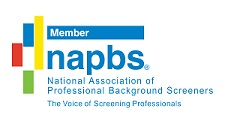You can't skimp on employee background checks
by Joanna Krotz
A few years back, two armed robbers were caught ransacking an upscale California home and they wound up shooting the owner. The thieves hadn't expected anyone to be there.
That's because they knew a lot about that house and its security. The pair had spent hours in the home, as carpet cleaners for a service that caters to wealthy homeowners.
The cleaner-robbers had a clever scam. Most affluent owners don't hang around when house cleaners arrive. So, typically, one guy worked while the other roamed, casing the contents, alarm systems, doors and windows. Then they left, only to return several months later to rob the place. Victims never made the connection to the carpet service — until the shooting.
When the robbers were found, the homeowner sued the service. It turned out that the men had criminal records and felony convictions before they were hired.
The company was found guilty of "negligent hiring." Its owners had to pay $11 million in damages.
When you tally the dollars and time it takes to recruit, interview, hire and train an employee, it doesn't make sense to cheap out on verifying background details. That may be especially important for smaller businesses where staffers often have multiple responsibilities. Even tiny employee lies can hurt your firm's reputation or bank account. And one bad hire can do enormous damage.
You do the math
Today, it costs roughly $50 for a professional pre-employment screening. Such searches ran $200 a few years ago. Prices are dropping as technology takes over.
Most third-party background checks are now completed in three to five days via expert searches of computerized public records and personal databases. When red flags are raised, investigators follow up the old-fashioned way, by phone and wearing out shoe leather.
There also are Web sites that offer access to public and commercial records, including Informus and KnowX. So you can gather background information for yourself.
This, of course, falls into the category of being careful about getting something for nothing. Such sites aren't necessarily trustworthy. You might end up with incorrect information and/or legal liability.
Heightened concerns
Lately, the efficient price and worries about safety brought on by Sept. 11 have led to more frequent employee screening in Fortune 500 and other large corporations. For instance, at PeopleWise, a Hollister, Calif.-based screening provider that helped with the hiring of 70,000 people at the Salt Lake City Olympics, president Gary Cornick says business is up 32% since September. The company is averaging 5,000 checks a day.
By contrast, midsize and small firms are still reluctant to spend resources on screening. Yet hundreds of job seekers fudge facts or outright lie about their skills, experience or education. That goes for seemingly inconsequential details and for VIP candidates, too.
Remember short-time Notre Dame football coach George O'Leary? He was forced to resign in 2001 for fabricating details on his résumé about his playing record at the University of New Hampshire and about having a master's degree in education from New York University.
Checks and balances
The need to investigate potential hires seems obvious for certain positions, such as security and law enforcement, health care and child care.
More broadly, you should consider screening any potential employees who will interact with the public, work in customers' homes or offices, or handle financial or other sensitive information.
"You don't need a criminal background check for every hire," says PeopleWise's Cornick. "But at a minimum, you should check information on an application form and verify basic information on a resume."
The key to protecting yourself is doing your best to verify information provided by candidates. Keep some written document of your efforts, including whoever you talk to, the dates and the questions you ask, while making every reasonable effort to check employee statements.
Keep it legal
State and federal laws police the kinds of information employers can use when making employment decisions. Most states follow federal guidelines, but there are variations, with California being the most complicated and New York a close second. Check your state's requirements before proceeding.
"When doing background checks, employers are between a rock and a hard place," says Steven Ludwig, partner at Fox, Rothschild's Labor & Employment Department in Philadelphia. "If they do too little, they can be sued. If they do too much, they may be violating federal and state law by making prohibitive inquiries."
The majority of federal protections for worker privacy and rights are overseen by the Fair Credit Reporting Act of 1971 (plus significant amendments in the late 1990s), the Privacy Act of 1974, and the Americans with Disabilities Act of 1990, among others.
Most regulations kick in only when you hire a third party to do the investigation. If you verify information yourself, many laws do not apply. Even so, research the issues or talk to an employment lawyer or a veteran human resources consultant before beginning. You want to set up clear company policies about screening and select positions that require background checks.
Do not, for example, investigate random candidates or applicants who make you suspicious. That appears arbitrary and discriminatory and could lead to legal trouble. The idea is to consistently screen for a position, rather than investigate any individual.
Before beginning, you must gain written permission from the candidate. There are strict guidelines about that, too. Permission must be on a separate sheet of paper and in a specific size of type and so on.
Overall, says Rob Ghio, who heads the employment section of Arter & Hadden law firm in Dallas, "figure out what information you really need and what you will do with it once you get it."
What to look at
Reports range from simply verifying social security numbers to full-dress investigations, much of it from public records, including:
• Education records
• Arrest, court or criminal records
• Credit reports or bankruptcy filings
• Driving records and vehicle registrations
• Medical records and workers' compensation
• Military service records
• Property ownership
• State licensing records
• Character references or interviews with neighbors
• Employment verification
There are specific regulations about investigations that result in an "adverse employment action." In other words, legally, you can refuse to hire people for some things and not others. You must also let the candidate know what you've learned, in writing, and give him or her "reasonable" time to rebut the information.
And, by the way, if a previous employer will only confirm dates of employment and offer no other information, don't assume the worst. Employers are now so concerned about liability that they routinely adopt such reference policies, even for valued ex-staffers.
All this is why third-party investigators earn their fees. Good ones understand the nuances and know all the rules.
Choosing an investigator
Before hiring an employment screener, carefully check their references. Your liability is on the line. Ask where their information will come from, and how they make sure it's current. Court records, for instance, change daily.
"If they say the information is 'proprietary,' or they can't tell you sources, then you should probably walk away," Cornick says. "There are no secrets here."
Despite the legal complications, pre-employment screening and background checks seem cheap at the price. Is it really smart to put your firm at risk to save 50 bucks?










